Filter by
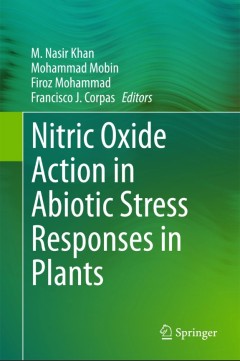
Nitric Oxide Action in Abiotic Stress Responses in Plants
This book offers an up-to-date review of the regulatory role of nitric oxide (NO) changes in the morphological, physio-biochemical as well as molecular characteristics of plants under abiotic stress. The first of two parts comprises four chapters and focuses on the properties, chemical reactions involving NO and reactive nitrogen species in plants. The second part, consisting of eleven chapters…
- Edition
- 1
- ISBN/ISSN
- 978-3-319-17804-2
- Collation
- XII, 252
- Series Title
- -
- Call Number
- -
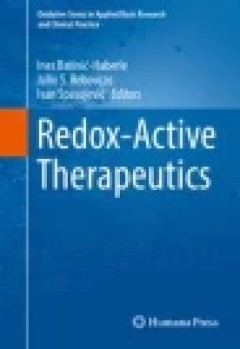
Redox-Active Therapeutics
This essential volume comprehensively discusses redox-active therapeutics, focusing particularly on their molecular design, mechanistic, pharmacological and medicinal aspects. The first section of the book describes the basic aspects of the chemistry and biology of redox-active drugs and includes a brief overview of the redox-based pathways involved in cancer and the medical aspects of redox-a…
- Edition
- -
- ISBN/ISSN
- 978-3-319-30705-3
- Collation
- -
- Series Title
- -
- Call Number
- 616.994
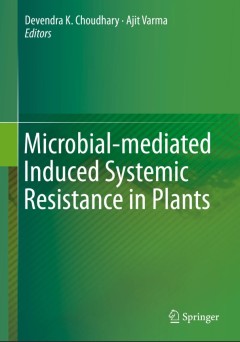
Microbial-mediated Induced Systemic Resistance in Plants
With a focus on food safety, this book highlights the importance of microbes in sustainable agriculture. Plants, sessile organisms that are considered as primary producers in the ecosystem and communicate with above- and below-ground communities that consist of microbes, insects, and other vertebrate and invertebrate animals, are subjected to various kinds of stress. Broadly speaking, these can…
- Edition
- 1
- ISBN/ISSN
- 978-981-10-0387-5
- Collation
- X, 226
- Series Title
- -
- Call Number
- -
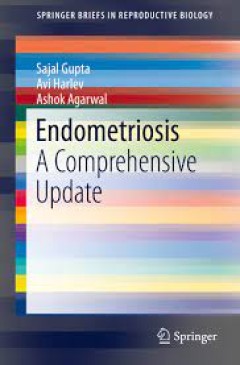
Endometriosis A Comprehensive Update
This SpringerBrief provides an update on endometriosis research -- from the underlying mechanisms, predisposing factors, role of environmental pollutants, treatment options, impact on quality of life, and biomarkers, to emerging treatment modalities in order to help clinicians to pursue a patient-centered approach in managing the disease. This book provides clinicians with a better insight into…
- Edition
- -
- ISBN/ISSN
- 978-3-319-18308-4
- Collation
- 10 b/w illustrations, 9 illustrations in colour
- Series Title
- -
- Call Number
- -

Natural UV Radiation in Enhancing Survival Value and Quality of Plants
This book is the first of its kind to highlight the positive impact of natural UV radiation on plants through unique adaptations in various metabolic pathways, and provides an evolutionary sketch of the development of molecular mechanisms for protecting plants from solar UV ever since their migration to terrestrial habitats. Experimental evidence is provided for establishing how plants, through…
- Edition
- 1
- ISBN/ISSN
- 978-81-322-2765-6
- Collation
- XIX, 204
- Series Title
- -
- Call Number
- -
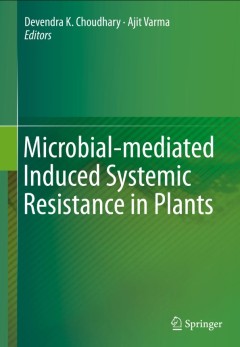
Microbial-mediated Induced Systemic Resistance in Plants
With a focus on food safety, this book highlights the importance of microbes in sustainable agriculture. Plants, sessile organisms that are considered as primary producers in the ecosystem and communicate with above- and below-ground communities that consist of microbes, insects, and other vertebrate and invertebrate animals, are subjected to various kinds of stress. Broadly speaking, these can…
- Edition
- 1
- ISBN/ISSN
- 978-981-10-0387-5
- Collation
- X, 226
- Series Title
- -
- Call Number
- -
 Computer Science, Information & General Works
Computer Science, Information & General Works  Philosophy & Psychology
Philosophy & Psychology  Religion
Religion  Social Sciences
Social Sciences  Language
Language  Pure Science
Pure Science  Applied Sciences
Applied Sciences  Art & Recreation
Art & Recreation  Literature
Literature  History & Geography
History & Geography